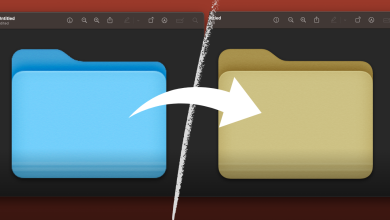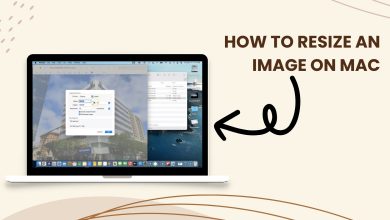How to Fix ‘Unable to Expand Zip File’ Error on Mac
The “Unable to Expand Zip File” error on Mac indicates that macOS can’t unzip a file, often due to corruption or incomplete data. This error appears when a file is partially downloaded or contains broken data, stopping it from being processed correctly. The most common cause is a corrupted file from interrupted downloads, but it can also result from permission issues or unsupported formats, such as password-protected or encrypted zips.
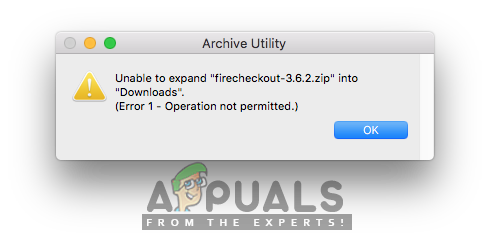
In this article, we will discuss several ways to solve this error.
1. Unzip File Using Terminal
Using Terminal to unzip a file bypasses the macOS Archive Utility, allowing manual extraction. This method works for files the default utility can’t handle, such as corrupted or encrypted zips. The unzip command forces the system to try extraction, providing clearer error messages or decompressing the file, which helps identify issues with permissions or file corruption.
- Press Command + Space to open Spotlight. Type Terminal and press Enter.
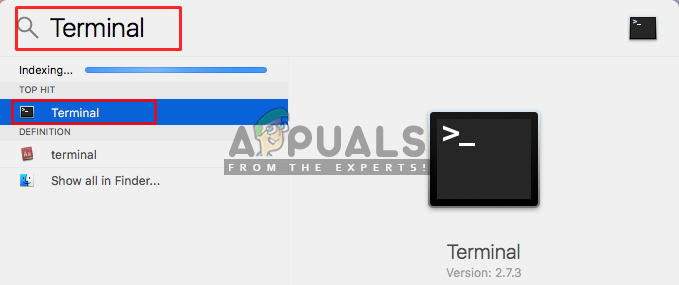
Opening Terminal through Spotlight - Run the unzip command on your ZIP file:
unzip filename.zip
(Drag the ZIP file into Terminal to insert the directory path).
- Press Enter to unzip the file.

Decompressing the ZIP file in Terminal - If you encounter errors like “No such directory,” use the cd command to navigate to the correct directory:
cd Desktop unzip timer.zip
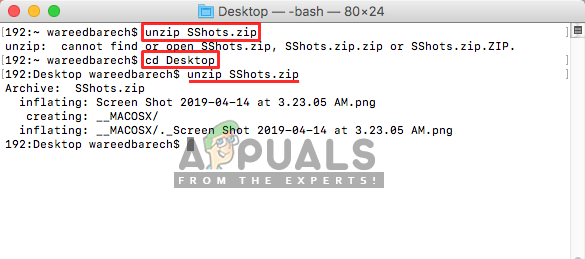
Using the cd command to change directory and then unzip in Terminal
2. Use a Decompression Utility Software
Switching to a tool like The Unarchiver offers a more reliable solution than the default Mac utility. These programs handle more archive formats and better manage corrupted, encrypted, or partially downloaded zip files, addressing the limitations of macOS’s built-in Archive Utility.
- Open the Mac App Store from the Dock.

App Store on Mac OS - Search and install “Stuffit Expander.”
- Open “Stuffit Expander” from the Dock or Spotlight (Command + Space).
- Select the ZIP file to unzip.
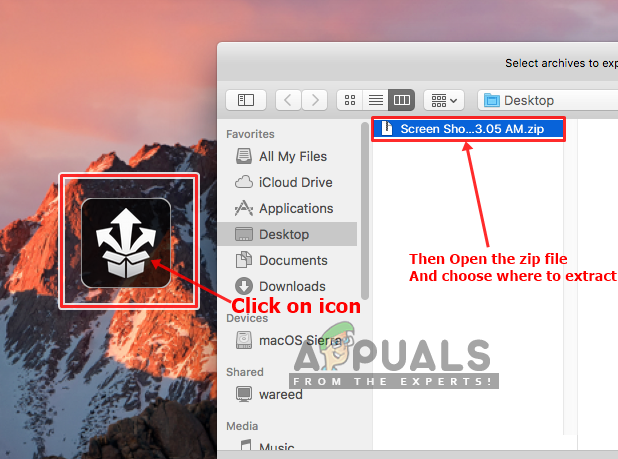
Unzipping a ZIP file using Stuffit Expander - Choose a destination folder and unzip the file.



